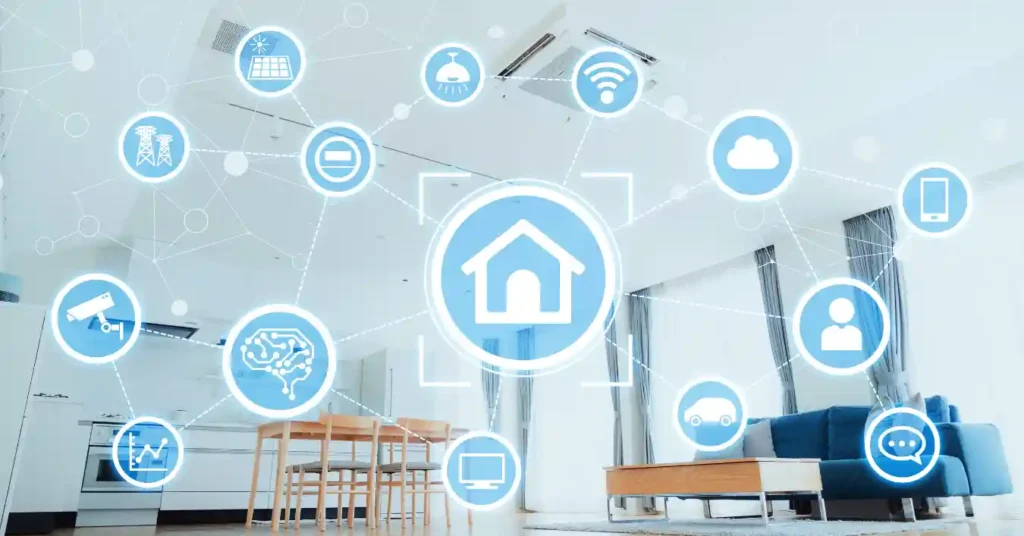Sponsored By Rent
The advent of technology has not only transformed our daily lives but also paved the way for a more inclusive and accessible future. Home automation, once considered a luxury reserved for the affluent, has evolved into a practical and empowering solution for individuals with disabilities or mobility limitations living in apartments for rent in West Jordan. As smart devices and systems become more affordable and readily available, integrating home automation into apartments can significantly improve the quality of life for people facing accessibility challenges. This article delves deeper into the benefits of home automation in apartments and explores how it empowers individuals to lead more independent and comfortable lives.
The Power of Home Automation
At its core, home automation encompasses the integration of smart devices and systems that enable homeowners or tenants to control various aspects of their living space remotely. From adjusting lighting and temperature to managing security and entertainment, these technologies automate tasks that were previously time-consuming or physically demanding. For individuals with disabilities or limited mobility, this can be life-changing, as they gain control over their environment without having to rely heavily on external assistance.
Creating a Smart Environment

The concept of a smart home revolves around creating an environment that responds intuitively to the occupants’ needs and preferences. For apartment dwellers with accessibility challenges, such an environment is especially beneficial. Through the seamless integration of smart devices such as voice-controlled assistants, motion sensors, and remote-controlled appliances, a cohesive and efficient home automation system can be established.
Voice-Activated Assistants for Independence
Voice-activated assistants, like Amazon’s Alexa or Google Assistant, have revolutionized the way people interact with their surroundings. For individuals with disabilities, these intelligent virtual assistants act as invaluable companions, empowering them to control various aspects of their apartment with simple voice commands. From adjusting lighting and temperature to setting reminders and scheduling appointments, voice-activated assistants enhance independence and reduce reliance on others.
Smart Lighting Systems: A Brighter Path to Inclusivity
Traditional lighting systems can be challenging to navigate for individuals with limited mobility. Smart lighting systems offer a solution by allowing users to control lighting through voice commands or motion sensors. They can effortlessly turn lights on or off, adjust brightness, or change colors to create ambiance, promoting a more comfortable and personalized living space. Moreover, automated lighting can be programmed to illuminate pathways during specific hours, further enhancing safety for those with mobility difficulties.
Automated Climate Control: A Comfortable Haven
Maintaining an optimal indoor temperature is essential for comfort and well-being, especially for people with certain medical conditions. Home automation allows for the integration of smart thermostats that can regulate the temperature based on occupants’ preferences or external conditions. This not only improves the quality of life but also contributes to energy efficiency, leading to cost savings and a smaller carbon footprint.
Accessible Security Systems: Peace of Mind for All

Home automation enhances security in apartments and can be particularly valuable for individuals with disabilities who might face challenges in managing traditional security systems. Smart security cameras, motion detectors, and video doorbells can be accessed and controlled through smartphones or voice commands. The ability to monitor and control security remotely provides a sense of safety and reassurance, promoting peace of mind for all residents.
Smart Home Entertainment: Inclusive Leisure
Entertainment is an essential aspect of daily life, and home automation can take it to the next level for individuals with accessibility challenges. Voice-controlled systems can navigate through TV channels, adjust volume, and manage other entertainment devices. This eliminates the need for multiple remote controls and simplifies the overall entertainment experience. Additionally, subtitles and audio descriptions can be integrated into the entertainment setup, making movies and TV shows accessible to those with hearing or visual impairments.
Assisted Living with IoT Devices: Enabling Independence
The Internet of Things (IoT) plays a vital role in enhancing accessibility in apartments. IoT devices can be interconnected to monitor health conditions, track daily activities, and provide timely reminders for medications or appointments. For seniors or individuals with medical conditions, these IoT-based assisted living technologies can be a lifeline, ensuring that they can live independently with a safety net in place.
Smart Home Automation for the Visually Impaired: Empowering Independence
For individuals with visual impairments, smart home technology offers revolutionary solutions. Voice-controlled devices, coupled with home automation, enable those with visual challenges to interact with their surroundings effectively. Additionally, smart appliances with tactile controls and audio feedback can simplify daily tasks, making the apartment more accessible and user-friendly.
Customizing Home Automation Solutions: Personalized Inclusivity
Every individual’s accessibility needs are unique, and home automation allows for customization to suit these requirements. Whether it’s adjusting the height of smart home devices for wheelchair users, optimizing their placement for convenient access, or creating personalized routines based on specific needs, the flexibility of home automation ensures that it caters to diverse requirements.
Conclusion
Home automation is a transformative technology that holds the potential to significantly enhance accessibility in apartments for individuals with disabilities or mobility limitations. By creating a smart and interconnected environment, people can gain more independence, improve their quality of life, and reduce reliance on external assistance. As technology continues to evolve, we can expect home automation to play an increasingly vital role in creating a more inclusive and accessible society. The future of apartment living is undoubtedly smarter, more connected, and more empowering for all residents, fostering an environment of inclusivity and independence.
The Role of Test Orchestration in an Effective Automation Strategy










